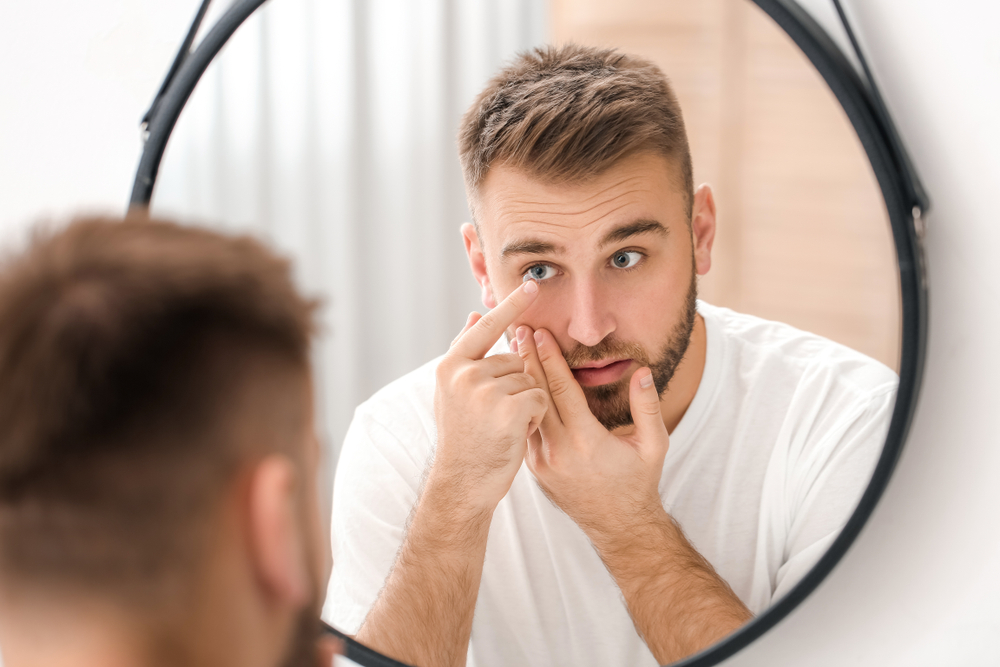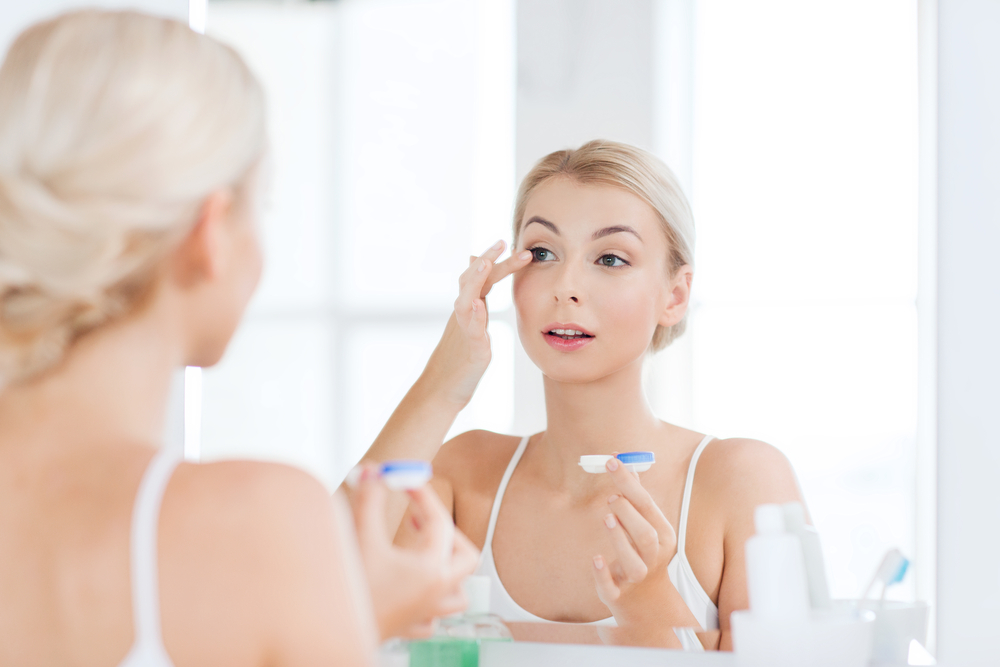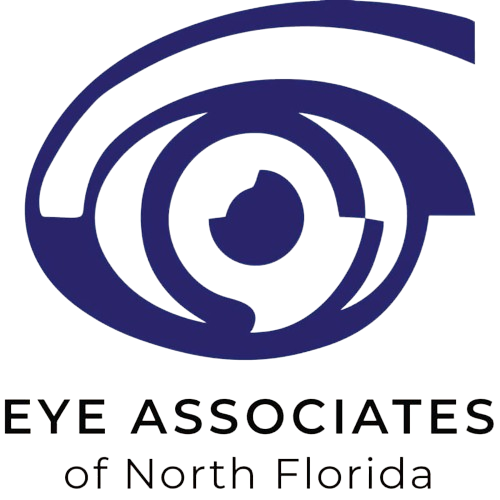Can You Shower with Contacts?

If you are considering getting contacts or have just started wearing them, you may have questions about proper contact care and hygiene. To ensure your eyes stay healthy and you maintain clear vision, it’s important to learn what you should and should not do while wearing your contacts.
While they often lessen the hassle of glasses, working seamlessly with your eyes to provide you with clearer vision, they come with their own guidelines to follow and lifestyle changes you may need to make to your daily routine, including showering.
Keep reading to learn more about whether you can shower with contacts, and what tips you should follow to safely wear contact lenses.
What are Contacts?

Contacts are thin, curved lenses that sit directly on the surface of the eye. They are primarily used to correct refractive errors, including nearsightedness, farsightedness, and astigmatism.
They are made from various materials, such as soft hydrogel, silicone, or rigid gas-permeable plastic. Contacts work by bending incoming light and properly focusing it onto the retina.
They are most often worn as a more discreet alternative to eyeglasses. They offer a wider field of vision, and unlike eyeglasses, contact lenses don’t fog up, slip down the nose, or get splattered by rain.
People also wear contact lenses for cosmetic purposes, such as changing eye color or creating special effects for theatrical productions or Halloween costumes. Specialized contact lenses provide therapeutic benefits for people with specific eye conditions, including dry eye and corneal abnormalities.
What Types of Contact Lenses Are There?
There are several different types of contacts, each designed to meet different vision and personal needs. These types include:
Soft Lenses

Soft contact lenses are the most common type of contact lenses. Made from flexible materials that conform to the shape of the eye, they are comfortable to wear, easy to adjust, and are available as daily, bi-weekly, or monthly disposables.
Rigid Gas Permeable (RGP) Lenses
This type of lens is made from hard, oxygen-permeable plastic and may be the best option for people with astigmatism or keratoconus. They can be uncomfortable to wear at first but can provide clearer vision with increased durability and higher resistance to protein buildup.
Toric Lenses
Toric lenses are designed specifically for astigmatism, a refractive error typically caused by abnormalities in the shape of the eye. They have different powers in different parts of the lens to compensate for the irregular curvature of the cornea.
Multifocal Lenses
These lenses are often used to correct presbyopia or age-related farsightedness. They work much like multifocal eyeglasses, with different powers on the top and bottom of the lens to provide clear vision at multiple distances.
How Do You Care For Contact Lenses?
No matter what type of contact lenses you wear, caring for your contacts is essential to eye health. Wearing contact lenses that have not been properly cleaned can put you at risk for eye infections or corneal damage.
While you should always follow your eye doctor’s instructions, these are the basic steps in caring for your contact lenses:
Disinfect Daily
After washing your hands with antibacterial soap, you should rub your contact lenses between your fingers with a disinfecting solution to dislodge debris and deposits. You should store your lenses in a disinfecting solution for at least six hours before wearing them again.
Use Fresh Solution Every Day
You should always dump out old solution and fill your contact lens case with fresh solution before disinfecting or storing them.
Use the Proper Solution

Some contact lenses require different solutions for cleaning, disinfecting, and rewetting. Check with your eye doctor to ensure you have the right lens care system for your type of lenses.
You should never use saliva or put your contacts into your mouth to rewet them, as that can lead to eye infections.
Clean and Replace Your Contact Lens Case Often
After each use, rinse your contact lens case with a sterile solution, either disinfecting or saline, and leave it open to air dry. Never use tap water to rinse your contact lens case, and replace it every three months or sooner if it shows wear.
Wear Your Contacts as Directed
To protect the health of your eyes, you should always wear your contact lenses as directed. Trying to wear your lenses for longer than the time they were designed for can lead to eye infections or other eye problems.
You should also not sleep with your contact lenses or share them with others.
Can You Shower With Contacts In?
You should always remove your contact lenses before you shower. This is because germs and bacteria in shower water can stick to your contact lenses and lead to an eye infection.
For this same reason, you should also not wear contacts when swimming at the beach, pool, lake, or any other body of water. If you wear soft contact lenses, water can even cause them to change shape or stick to your eye.
In the event that you accidentally shower or swim with contacts in, you should remove them as soon as possible and be on the lookout for symptoms of an eye infection, including:
- Eye pain or stinging
- Blurry vision
- Dry eyes
- Excessively watery eyes
- Light sensitivity
- Eye discharge
- Red eyes
- Swollen eyelids
If you think you may have an eye infection, contact your eye doctor at Eye Associates of North Florida immediately to ensure you get the care you need.
Crystal-Clear Vision Without Glasses
Contact lenses are a great option if you need to correct your vision but don’t want to wear glasses full-time. With proper care and taking the right precautions, you can protect the health of your eyes and achieve high-quality, comfortable vision with contact lenses.
Do you want to learn more about proper contact lens care, or check out our selection of contacts? Schedule an appointment at Eye Associates of North Florida in Tallahassee, FL, today!







